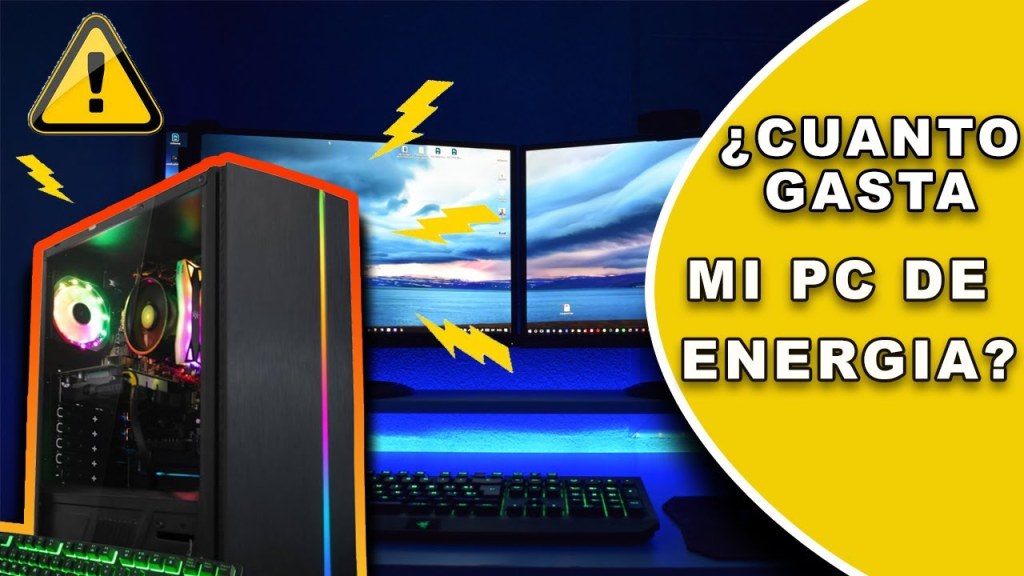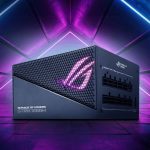Discover The Power: How Many Watts Does A Gaming PC Consume Per Hour?
How Many Watts Does a Gaming PC Consume per Hour?
Greetings, fellow gamers! Today, we are delving into the fascinating world of PC gaming and its power requirements. Have you ever wondered how many watts a gaming PC consumes per hour? Well, you’ve come to the right place. In this article, we will explore the ins and outs of power consumption in gaming PCs, providing you with all the necessary information you need. So, let’s dive in!
Introduction
PC gaming has become increasingly popular in recent years, with gamers around the world investing in powerful rigs to enhance their gaming experience. However, with great power comes great responsibility, and in this case, high power consumption. Understanding how much electricity your gaming PC consumes is crucial not only for your electricity bill but also for the environment.
2 Picture Gallery: Discover The Power: How Many Watts Does A Gaming PC Consume Per Hour?


In this article, we will discuss the average power consumption of a gaming PC per hour, factors that affect it, and tips on how to optimize power usage without compromising your gaming performance. So, if you’re a gamer or a game enthusiast eager to learn more about this topic, read on!
The Basics: What is Power Consumption?
Before we delve into the specifics of gaming PC power consumption, let’s start with the basics. Power consumption refers to the amount of electrical energy used by a device or appliance over a specific period. It is typically measured in watts (W) and can vary depending on various factors, such as the device’s hardware, usage patterns, and energy-saving features.

Image Source: profesionalreview.com
When it comes to gaming PCs, power consumption can be influenced by several components, including the graphics card, processor, RAM, storage devices, and cooling system. These components work together to deliver an immersive gaming experience but also contribute to higher energy usage.
Who Determines Power Consumption of Gaming PCs?
The power consumption of gaming PCs is primarily determined by the hardware manufacturers. Companies like NVIDIA, AMD, Intel, and others design and produce the components used in gaming PCs, ensuring they meet the performance demands of gamers. As technology advances, hardware manufacturers strive to develop more energy-efficient components without sacrificing performance.
In addition to hardware manufacturers, regulatory bodies and organizations such as ENERGY STAR also play a role in setting energy efficiency standards for electronic devices, including gaming PCs. These standards help consumers make informed choices when purchasing energy-consuming products.
When Does Power Consumption Matter?
The power consumption of your gaming PC becomes particularly relevant when considering long gaming sessions or leaving your PC powered on for extended periods. The more time your PC spends running, the more energy it consumes, which can significantly impact your electricity bill.
Image Source: fbsbx.com
Additionally, if you live in an area with high electricity costs or have a limited power supply, being aware of your gaming PC’s power consumption can help you make informed decisions about your gaming habits and energy usage.
Where Can You Find Power Consumption Information?
When purchasing a gaming PC or its components, it’s essential to consider power consumption. Fortunately, you can find this information on product specifications provided by manufacturers. Graphics cards, processors, and other components often include details about their power requirements, allowing you to estimate the energy usage of your PC.
You can also find power consumption information on reliable technology websites, forums, and reviews. These sources often provide valuable insights and comparisons between different products, helping you make an informed decision when choosing components for your gaming PC.
Why Is Optimizing Power Consumption Important?
Optimizing power consumption in your gaming PC benefits both your wallet and the environment. By reducing the amount of energy your PC consumes, you can lower your electricity bills and contribute to a more sustainable future.

Image Source: ytimg.com
Moreover, efficient power usage can enhance the longevity of your gaming PC’s components. Excessive heat generated by high power consumption can negatively impact your hardware’s lifespan. By optimizing power usage and maintaining proper cooling, you can extend the lifespan of your gaming PC and reduce the need for frequent upgrades.
How Can You Optimize Power Consumption?
Now that we’ve established the importance of optimizing power consumption, let’s explore some tips to help you achieve this goal:
1. Choose Energy-Efficient Components: When building or upgrading your gaming PC, opt for components that offer high performance while consuming less power. Look for energy-efficient graphics cards, processors, and power supplies.
2. Adjust Power Settings: Take advantage of power-saving features available in your operating system and graphics card settings. Reduce screen brightness, enable sleep mode, and adjust power plans to minimize energy consumption during idle times.
3. Proper Cooling: Overheating can lead to increased power consumption and reduced performance. Ensure your gaming PC has adequate cooling by using efficient fans, maintaining good airflow, and regularly cleaning dust from your components.
4. Unplug Unused Peripherals: Disconnect or turn off any peripherals or accessories that are not in use. Devices like printers, external hard drives, or additional monitors can consume power even when not actively used.
5. Control Background Processes: Close unnecessary programs and processes running in the background. These can consume system resources and increase power usage without benefiting your gaming experience.
Advantages and Disadvantages of High Power Consumption
Like any other aspect of gaming PCs, power consumption has its pros and cons. Let’s take a closer look at both sides:
Advantages:
1. High performance: Gaming PCs with higher power consumption often deliver better performance, allowing you to enjoy graphically demanding games with smooth framerates.
2. Enhanced gaming experience: More powerful components can provide better visuals, faster load times, and improved overall gaming experience.
Disadvantages:
1. Increased energy costs: Higher power consumption translates into higher electricity bills, especially for gamers who spend several hours gaming each day.
2. Environmental impact: Greater energy consumption contributes to carbon emissions and environmental degradation. This is a concern for those looking to reduce their carbon footprint.
Frequently Asked Questions (FAQs)
1. Does overclocking increase power consumption?
Yes, overclocking your gaming PC’s components can increase power consumption. When you overclock a processor or graphics card, it operates at higher frequencies, requiring more power to function correctly.
2. Can a gaming PC’s power consumption be measured?
Yes, you can measure your gaming PC’s power consumption using a device called a watt meter or a power meter. These devices plug into your PC and measure the electricity it consumes.
3. Can power consumption be reduced without sacrificing gaming performance?
Yes, by following the optimization tips mentioned earlier, you can reduce power consumption without compromising gaming performance. Energy-efficient components, proper cooling, and adjusting power settings can all contribute to a more efficient gaming PC.
4. Does power consumption vary between different games?
Yes, power consumption can vary depending on the game you are playing. More graphically demanding games that utilize the GPU extensively may consume more power compared to less demanding titles.
5. What is the average power consumption of a gaming PC per hour?
The average power consumption of a gaming PC can range from 300 to 600 watts per hour, depending on the components and usage. However, high-end gaming PCs with multiple graphics cards or extensive overclocking can consume even more power.
Conclusion
As gamers, we understand the importance of both performance and responsible energy consumption. By being aware of how many watts a gaming PC consumes per hour, we can make informed decisions about our hardware, usage patterns, and optimize power consumption without sacrificing our gaming experience.
Remember, choosing energy-efficient components, adjusting power settings, and maintaining proper cooling are just some of the steps we can take to minimize our gaming PC’s power consumption. Let’s strive for high-performance gaming while being mindful of our environmental impact and energy costs.
Final Remarks
While we have provided comprehensive information about power consumption in gaming PCs, it’s essential to keep in mind that specific power requirements may vary based on individual setups and usage patterns. Consult product specifications, seek professional advice, and always stay informed about the latest energy-efficient technologies to make the best choices for your gaming needs.
This post topic: Game



